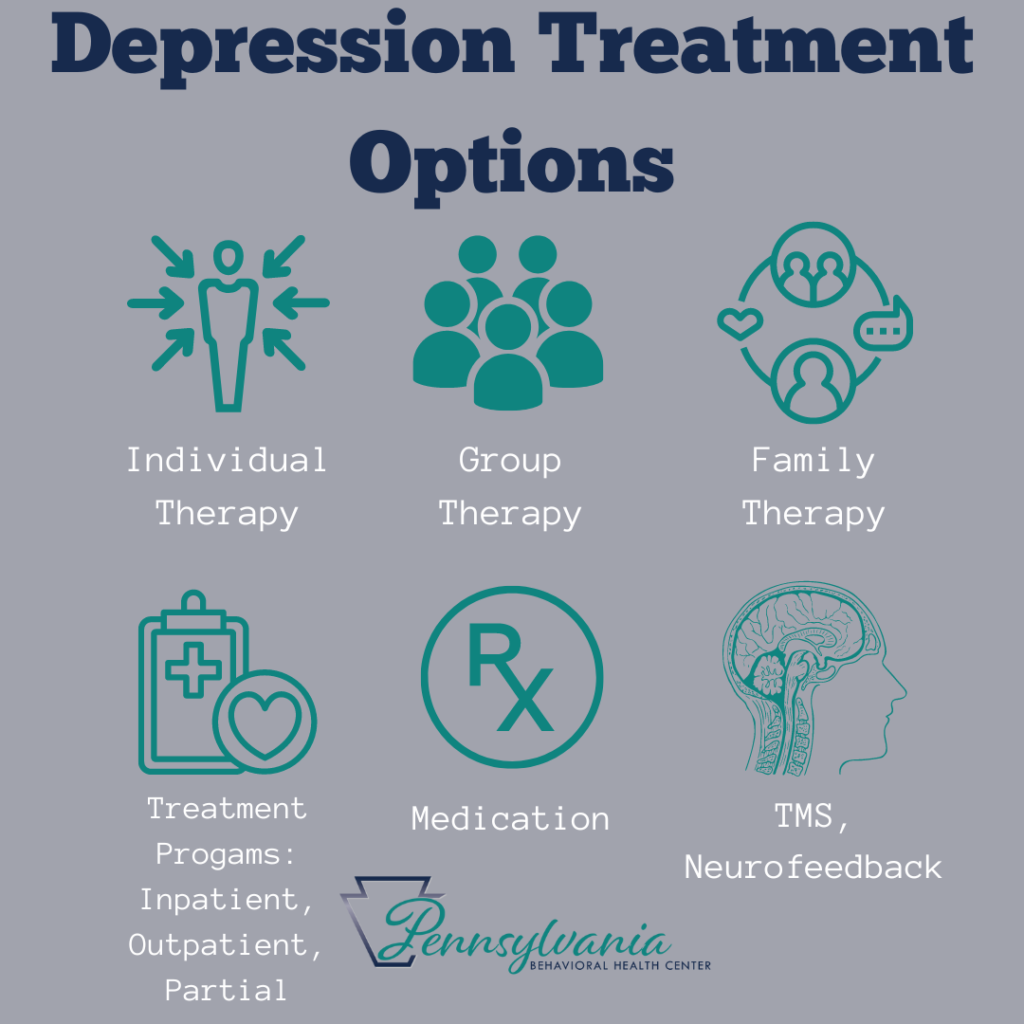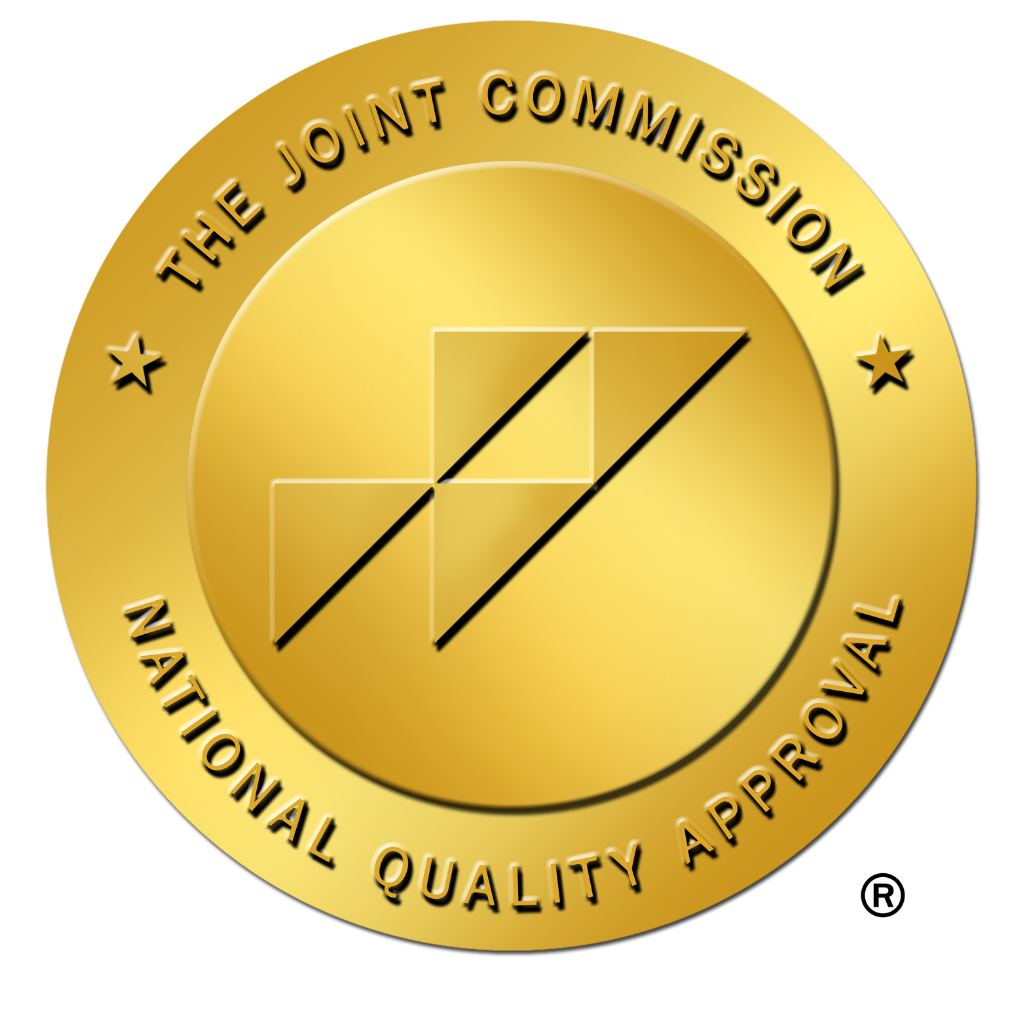
Depression Treatment In Pennsylvania
What is Depression?
Depression is a mental health disorder that affects millions of people around the world. It is characterized by persistent feelings of sadness, hopelessness, and a lack of interest in activities that were once enjoyable. Depression can significantly impact a person’s ability to function in their daily life, affecting their work, relationships, and overall well-being.
Number of adults disabled by Depression each year
What Causes Depression?
Depression can be caused by a combination of genetic, environmental, and psychological factors. Research shows that individuals with a family history of depression are more likely to develop the condition. Additionally, certain life events, such as trauma, loss, and stress, can trigger depression.
What kind of treatment options are there for Depression in Pennsylvania?
There are several options for the treatment of depression in Pennsylvania, including:
Common medications include selective serotonin reuptake inhibitors (SSRIs) and serotonin-norepinephrine reuptake inhibitors (SNRIs). These medications work by increasing the levels of serotonin and norepinephrine in the brain, which can improve mood and reduce feelings of depression.
Psychotherapy: Cognitive Behavioral Therapy (CBT) is a type of talk therapy that can be effective in treating depression. It helps individuals identify and change negative thought patterns and beliefs that may be contributing to their depression. Other forms of psychotherapy like Interpersonal therapy, Mindfulness-based therapy, and Psychodynamic therapy are also used.
Electroconvulsive therapy (ECT): ECT is a medical treatment that involves the application of electric currents to the brain to induce a seizure. ECT is usually used as a last resort for patients who do not respond to other forms of treatment.
Light therapy: Light therapy is used to treat seasonal affective disorder (SAD) and other forms of depression. It involves sitting in front of a light box for a certain period of time each day, to expose the individual to bright light.
Support groups: Joining a support group can be a helpful way for individuals with depression to connect with others who are going through similar experiences.
Self-help techniques: Some people find relief from depression through self-help techniques such as exercise, meditation, yoga, and journaling.
- Psychiatry: It is important to have a psychiatric evaluation to determine the severity of your depression, and follow the recommendations of a medical doctor rather than self-medicating.
Treatment for depression may vary depending on the individual, and it is often necessary to try different methods to find the one that works best. It’s important to consult a healthcare professional to determine the best course of treatment for you.
In Pennsylvania, you may also find support from the state’s Department of Health, which provides information and resources related to mental health, including treatment options. They also have a Behavioral Health and Developmental Services division which provide mental health services to people in the state.
Statistics on Depression
Depression is a common mental health disorder, affecting an estimated 264 million people worldwide. In the United States, it is estimated that 7.6% of adults experience at least one major depressive episode in a given year. Women are more likely than men to experience depression, and the condition is most commonly diagnosed in individuals between the ages of 18 and 25. According to the National Institute of Mental Health, depression is the leading cause of disability among Americans aged 15 to 44, affecting over 17 million adults in the United States each year. This is a shocking statistic that highlights the widespread impact of depression on individuals and society as a whole.
Effective Medications For Depression
There are several types of medications that can be effective in treating depression. Here are some of the most commonly used and effective medications:
Selective serotonin reuptake inhibitors (SSRIs): These medications work by increasing the level of serotonin in the brain. Examples include fluoxetine (Prozac), sertraline (Zoloft), and escitalopram (Lexapro).
Serotonin-norepinephrine reuptake inhibitors (SNRIs): These medications increase the levels of both serotonin and norepinephrine in the brain. Examples include venlafaxine (Effexor) and duloxetine (Cymbalta).
Tricyclic antidepressants (TCAs): These medications work by increasing the levels of serotonin and norepinephrine in the brain. Examples include amitriptyline (Elavil) and nortriptyline (Pamelor).
Monoamine oxidase inhibitors (MAOIs): These medications work by blocking the enzyme that breaks down serotonin, norepinephrine, and dopamine in the brain. Examples include phenelzine (Nardil) and tranylcypromine (Parnate).
Atypical antidepressants: These medications work in various ways to increase the levels of serotonin, norepinephrine, and dopamine in the brain. Examples include bupropion (Wellbutrin) and mirtazapine (Remeron).
It’s important to note that not all medications work the same for everyone, and it may take several weeks for the full effects of the medication to be felt. Additionally, medication should always be taken under the guidance of a healthcare professional.
Get Help for your Depression Today
The highly trained clinicians at Pennsylvania Behavioral Health Center are waiting for you to call to start your healing from Depression. You can’t do this on your own so get the help you need now. Call us at 610-563-2752 or email us at [email protected].
Mental Health Resources For Depression
Here is a list of local mental health resources for people who have depression in Pennsylvania:
Pennsylvania Mental Health Consumers’ Association (PMHCA): PMHCA is a statewide organization that provides information, support, and advocacy for individuals with mental health conditions. They offer peer support groups, education and training programs, and other resources.
National Alliance on Mental Illness (NAMI) Pennsylvania: NAMI Pennsylvania provides education, support, and advocacy for individuals and families affected by mental illness. They offer support groups, educational programs, and a helpline.
Pennsylvania Psychiatric Institute (PPI): PPI is a psychiatric hospital located in Harrisburg, Pennsylvania. They provide a wide range of mental health services, including inpatient and outpatient treatment, medication management, and therapy.
The Clinic for Special Children: The Clinic for Special Children is a nonprofit organization that provides medical and mental health services to individuals with rare genetic disorders in Lancaster County, Pennsylvania. They offer counseling services to patients and their families.
Pennsylvania Counseling Services (PCS): PCS is a community-based mental health agency that provides a range of services, including outpatient therapy, medication management, and psychiatric evaluations. They have locations throughout Central Pennsylvania.
The Samaritan Counseling Center of Western Pennsylvania: The Samaritan Counseling Center provides counseling services for individuals, couples, and families in Western Pennsylvania. They offer a sliding fee scale and accept most insurance plans.
The Wellness and Recovery Center: The Wellness and Recovery Center is a peer-run organization that provides support and resources for individuals in recovery from mental health and addiction issues. They offer support groups, educational programs, and other resources in Erie, Pennsylvania.
Hotlines For Depression
Here is a list of hotlines in Pennsylvania that can provide support and resources for people who have depression:
National Suicide Prevention Lifeline: The National Suicide Prevention Lifeline is a 24/7 hotline that provides support and resources for individuals in crisis. Call 1-800-273-TALK (8255) to speak with a trained counselor.
Crisis Text Line: The Crisis Text Line is a free, 24/7 text-based support service for individuals in crisis. Text “PA” to 741741 to connect with a trained Crisis Counselor.
Pennsylvania Mental Health Consumers’ Association (PMHCA) Warm Line: The PMHCA Warm Line is a non-emergency hotline that provides peer support and resources for individuals with mental health conditions. Call 1-866-437-1821 from 8am to 8pm Monday through Friday.
National Alliance on Mental Illness (NAMI) Helpline: The NAMI Helpline is a free, confidential hotline that provides information, resources, and support for individuals and families affected by mental illness. Call 1-800-950-NAMI (6264) to speak with a trained volunteer.
The Trevor Project: The Trevor Project is a 24/7 hotline that provides crisis intervention and suicide prevention services to LGBTQ+ youth. Call 1-866-488-7386 to speak with a trained counselor.
Veterans Crisis Line: The Veterans Crisis Line is a 24/7 hotline that provides support and resources for veterans in crisis. Call 1-800-273-8255 and press 1 to speak with a trained counselor.
Pennsylvania Department of Human Services Helpline: The Pennsylvania Department of Human Services Helpline provides support and resources for individuals and families in need of social services, including mental health services. Call 1-800-692-7462 to speak with a trained representative.
- Pennsylvania Behavioral Health Center – 610-563-2752
These hotlines are a great resource for individuals who may be struggling with depression or other mental health conditions. It’s important to reach out for help when needed, and these hotlines are available to provide support and resources.

Self Care & Lifestyle Changes for Depression Cure
If you are living in Pennsylvania and struggling with depression, there are some lifestyle changes and self-care practices that you can incorporate into your daily routine to help manage your symptoms. One of the most important things you can do is to establish a regular sleep schedule and prioritize getting enough sleep each night. Eating a healthy, balanced diet and incorporating regular exercise into your routine can also be beneficial for managing depression. Mindfulness practices, such as meditation and deep breathing exercises, can help reduce stress and anxiety. Additionally, it’s important to prioritize self-care activities that you enjoy, such as spending time with loved ones, engaging in hobbies, or practicing relaxation techniques like taking a warm bath or reading a book. While these practices may not be a substitute for professional treatment, they can help you manage your symptoms and improve your overall quality of life.
We accept most major health insurance such as Blue Cross, Aetna, Cigna, Unitedhealthcare, Beacon, Value Options & more.
Sources
- National Institute of Mental Health. (2021). Depression. Retrieved from https://www.nimh.nih.gov/health/topics/depression/index.shtml
- American Psychiatric Association. (2013). Diagnostic and statistical manual of mental disorders (5th ed.). Arlington, VA: American Psychiatric Publishing.
- Mayo Clinic. (2022). Depression (major depressive disorder). Retrieved from https://www.mayoclinic.org/diseases-conditions/depression/symptoms-causes/syc-20356007
- Centers for Disease Control and Prevention. (2021). Depression.
- World Health Organization. (2022). Depression. Retrieved from https://www.who.int/news-room/fact-sheets/detail/depression

